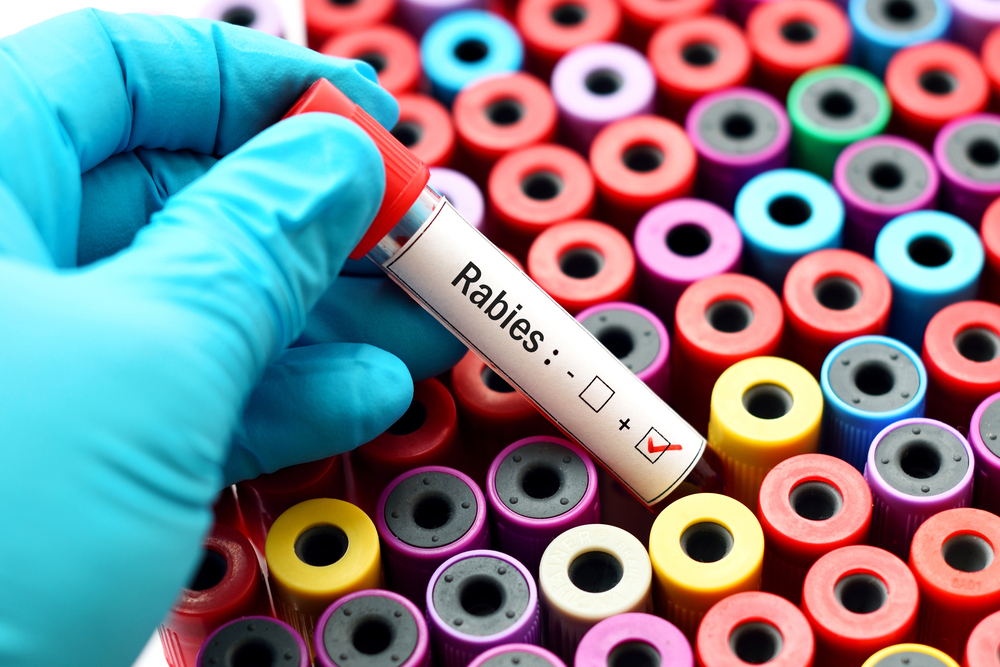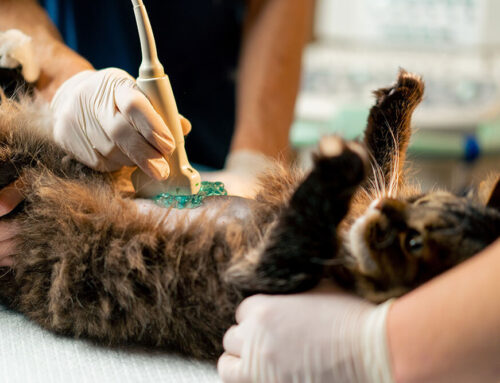Regular preventive care is crucial for keeping your four-legged friend healthy. To help you understand why regular vaccinations are so important for your pet, our team has assembled a guide to pet vaccinations and the diseases they prevent.
Vaccinations for dogs: Canine adenovirus-1 (hepatitis)
Canine adenovirus-1, often called infectious canine hepatitis, can cause a wide variety of signs in dogs that range in severity. This disease can also be seen in foxes, wolves, bears, and lynx.
Signs: Canine hepatitis signs include:
- High fever
- Spontaneous bleeding and bruising
- Ocular inflammation
- Inappetence
- Discharge from the eyes and nose
- Head, neck, and body swelling
Although canine hepatitis affects the liver, dogs rarely show any jaundice. After recovery, dogs may have blue eye (i.e., clouded corneas), and long-term kidney damage.
Transmission: Urine, feces, or saliva from infected dogs is the most common infection route. Recovered dogs can shed the virus in their urine for six months or more. This hardy virus can last in the environment for months, but can be killed with bleach.
Vaccinations for dogs: Canine distemper virus
Canine distemper is a highly contagious virus that infects several body systems in dogs, and can affect many worldwide species, including ferrets, raccoons, red pandas, Asian elephants, bears, and more.
Signs: Distemper signs vary, based on the affected body system, but can include:
- Fever
- Sneezing
- Coughing
- Difficulty breathing
- Vomiting
- Diarrhea
- Thickened skin on the nose and paw pads
- Conjunctivitis
Dogs who are ill for long periods are more likely to develop neurological signs, which can include muscle twitching, convulsions, circling, and head tilting.
Transmission: The main infection route is via aerosolized droplets from infected dogs (i.e., through sneezing and coughing). Some infected dogs can shed the virus for months.
Vaccinations for dogs: Canine parvovirus
Canine parvovirus (i.e., parvo) is a highly contagious and relatively common cause of gastrointestinal illness in puppies and unvaccinated dogs. Certain breeds seem at increased risk, including rottweilers, Dobermans, pit bulls, English springer spaniels, and German shepherds.
Signs: Parvo often starts out with vague signs, but can quickly progress, and you may notice:
- Lethargy
- Anorexia
- Fever
- Vomiting
- Diarrhea, which may be bloody
- Dehydration
- Abdominal pain
Transmission: Infection occurs through contact with virus-containing feces and virus-contaminated surfaces, items, people, and clothing. Parvovirus is extremely hardy, and is resistant to many common disinfectants and temperature changes. The virus can live indoors for at least two months, and can linger outdoors for years.
Vaccinations for dogs: Leptospirosis
Leptospirosis is zoonotic (i.e., the disease can be transmitted from animals to people) and can affect virtually all mammals. A large number of strains, or serovars, infect animals around the world, although veterinary professionals can vaccinate against four of the most common strains.
Signs: Leptospirosis signs can range from mild to severe, and may include:
- A high fever
- Lethargy
- Inappetence
- Weight loss
- Vomiting
- Diarrhea
- Jaundice
- Excessive thirst and urination
- Bloody urine
- Muscle weakness
- Abdominal discomfort
- Rapid or difficulty breathing
Transmission: Transmission generally involves contact with infective urine, either directly, or through contact with contaminated areas, such as dirt or water.
Vaccinations for dogs: Canine infectious tracheobronchitis
Canine infectious tracheobronchitis, also called kennel cough, can be caused by a multitude of pathogens. Bordetella bronchiseptica, canine parainfluenza virus, and canine adenovirus-2 are some of the most common pathogens that can lead to kennel cough.
Signs: The hallmark kennel cough sign, a goose-honk cough, can often be caused by palpating the trachea. Other signs can include:
- Runny eyes and nose
- Wheezing
- A decreased appetite
- Lethargy
Transmission: Kennel cough spreads easily through aerosolized droplets produced by coughing or sneezing, and can rapidly infect an entire kennel, boarding facility, doggy daycare, or animal shelter.
Vaccinations for dogs: Lyme disease
Lyme disease is most prevalent along the eastern coast, particularly in the New England states, but is spreading across the United States.
Signs: Lyme disease signs may not appear for months, and may wax and wane. They include:
- Shifting leg lameness
- Lethargy
- Fever
- Inappetence
- Vomiting
- Weight loss
Transmission: Lyme disease is transmitted via a deer tick (i.e., black-legged tick) bite.
Vaccinations for cats: Feline herpesvirus-1 and feline calicivirus
Also known as feline viral rhinotracheitis, herpesvirus infection is a major cause of upper respiratory illness in cats. Feline calicivirus is another leading contributor to respiratory illness, and the two diseases are often impossible to distinguish.
Signs: Both diseases can cause:
- Sneezing
- Fever
- Conjunctivitis
- Eyes or nose discharge
- Corneal inflammation and ulcers
- Mouth inflammation and sores
- Lethargy
- Anorexia
Transmission: These diseases are easily spread through aerosolized droplets from sneezing, and through contact with contaminated objects.
Vaccinations for cats: Panleukopenia
Similar to parvovirus in dogs, panleukopenia is a highly contagious, often fatal, illness that most commonly affects kittens.
Signs: Most older cats show no disease signs, but affected kittens may have:
- Depression
- Anorexia
- High fever
- Vomiting
- Diarrhea, which may be bloody
- Eyes or nose discharge
They also may die suddenly.
Transmission: Cats can become infected through exposure to infected animals, their feces, and their secretions, as well as contact with contaminated objects.
Vaccinations for cats: Feline leukemia
Feline leukemia, which is a most important infectious disease of cats worldwide, typically worsens quickly and is usually fatal.
Signs: Affected cats usually develop anemia, cancers, and/or immune system suppression, so they can exhibit a wide range of illness signs.
Transmission: The feline leukemia virus is transmitted between cats through infective urine and saliva.
Vaccinations for dogs and cats: Rabies

Rabies is a viral infection that can affect all mammals. The virus attacks the nervous system, causing brain and spinal cord inflammation, and is always fatal once clinical signs appear.
Signs: Rabies comes in two forms—furious and paralytic—which can both cause behavior changes and paralysis. Rabies signs can include:
- Hyperexcitability
- Withdrawn behavior
- Unprovoked aggression
- Excess salivation
- Inability to swallow
- Drooping of the lower jaw
- Progressive paralysis
Transmission: Transmission almost always occurs through the bite of an infected animal.
Without the proper vaccinations, your pet is susceptible to many serious infectious diseases. Protect your furry pal from illness by scheduling their wellness visit with our Midtown Veterinary Hospital team.






Leave A Comment